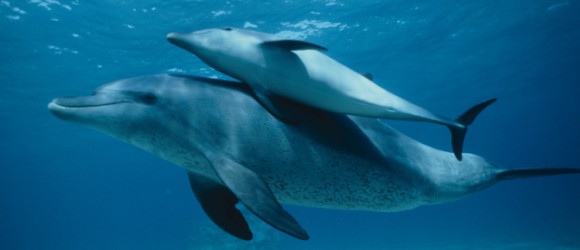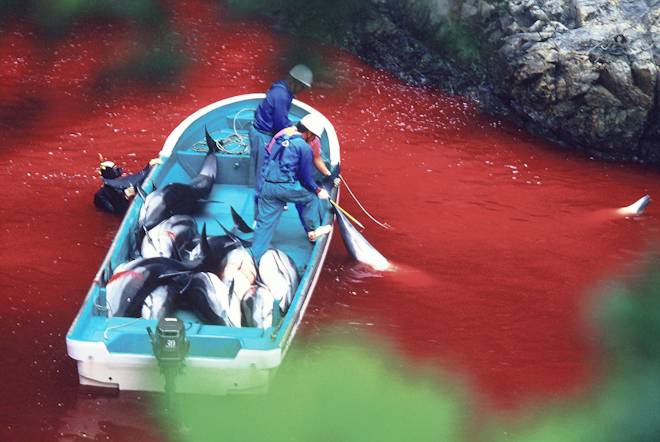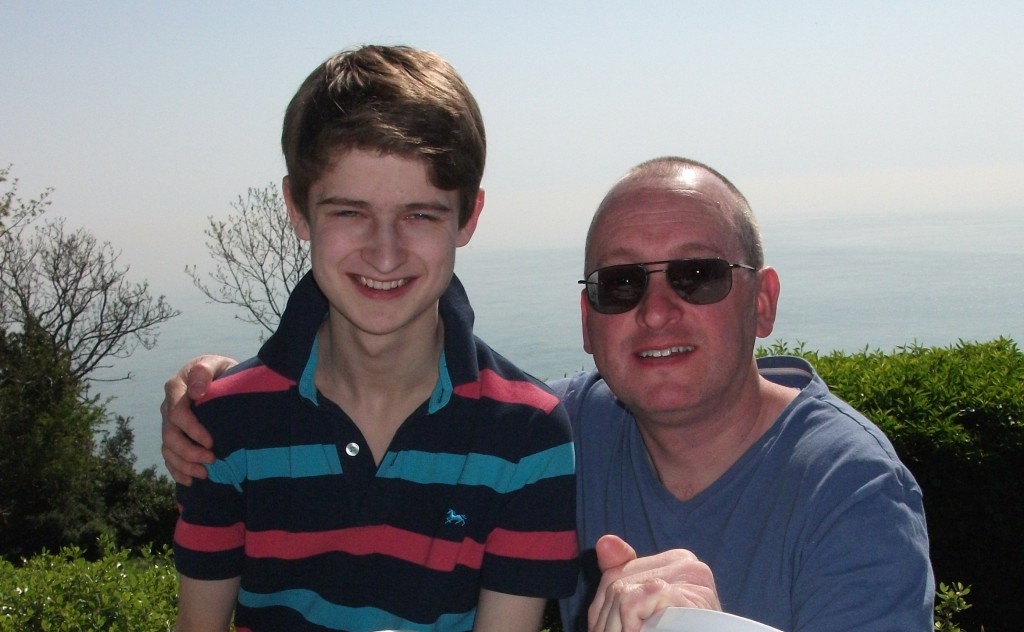Making Waves – Protecting The Dolphins At Tajii
- At February 20, 2014
- By Rosemary Wright
- In Global Issues
 2
2

Making Waves – Protecting The Dolphins At Taiji
Making Waves – Protecting the Dophins At Tajii – The irresistable enchantress of the sea – sleek – silver grey – joyful – leaping in the air with boundless enthusiasm – following boats – helping humankind – living as bonded families in pods – loving and soul deep. The dolphin as friend and spiritual brother!
I am happy to welcome Mark Stewart of London U.K. to A Beating Heart as a Guest Writer.
Mark has been deeply affected by the slaughter at Tajii
“I became an animal welfare supporter quite late in life, initially by giving a home to one rescue rabbit and then to two. I became a vegetarian last year and a vegan early this year. I refer to one of my rabbits affectionately as “Big Bear” as he’s so fluffy and hugable. Recently, my son and I helped to raise funds (via a sponsored cycle ride) to free from captivity some truly big bears. I support, in a very modest way, the ongoing efforts to end the killing of dolphins at Taiji. It’s not difficult to become passionately involved in animal advocacy – you just have to turn and face what so many people choose to ignore. The rest is all about compassion and making small changes to help achieve some truly big ones”
By
Mark Stewart – (with his son Alex)
London U.K. – February 2014
Where does it come from this notion of dominion, that animals are ours to do with as we please? At its worst it’s a belief that leads to unimaginable cruelty, as is the case now in a place that is quickly becoming synonymous with man’s inhumanity to his fellow creatures. If human beings were aquatic they might very well resemble dolphins.
Indeed dolphins are descended from the same ancestors as ourselves – they are our close cousins who chose to live in the sea while others stepped out on the land. They are a part of us, of a community of sentient creatures, members of the true world-wide-web of all living things. They talk to each other, live in social groups and protect one another from danger.
Sadly, while they can fight off Orcas and other natural predators, they have little protection against man, their most rapacious enemy. As with so many other species, dolphins need our protection now more than ever, especially from the systematic and mechanised slaughter currently taking place in a quiet but blood-stained cove in Japan. Every day for weeks on end the hunting boats go out to kill or capture dolphins, and to turn the sea red.
Even though I have chosen to bear witness, like thousands of others, there are times when I have to look away from some of the images this generates. One picture in particular has affected me deeply, that of a black-suited diver guiding a dolphin towards its execution, a graphic depiction of innocence and trust betrayed by a callous hunter.
History teaches us that genocides always start with small actions, with organised round-ups of the oppressor’s victims. So it is with the dolphins of Taiji, corralled and captured by those who see only their commercial value. Just as factory farming is unsustainable, so is the harvesting of the world’s oceans, the endless reaping of every species that makes its home in the sea. Extinction looms for many of these creatures and soon there will be nothing left on land or sea. And what does the hunter eat then?
Those responsible for the carnage at Taiji claim its part of an important tradition, as if this justifies their barbarism. They seem to care little for the attention their activities generate in the world media, and how it undermines their nation’s reputation as a land of culture. Their shame, if they feel it at all, holds them back not in the least; those wielding the scythe are uninhibited killers.
This is why others have to care, to make up for the shortfall in humanity and decency. This is why the day of protest outside the Japanese Embassy in London on the 21st February is so important. It’s time to make big waves; big enough to reach that quite cove and stop the hunt.
It’s time to send a tsunami of compassion and justice around the globe, one that will overwhelm the hunters, and stop the seas from turning red with the blood of our aquatic cousins.

Jenny Brown, author of The Lucky Ones, and founder of Woodstock Farm Animal Sanctuary
“It can feel overwhelming to work against such ingrained traditions and powerful interests, but I’m fighting for the day when people ultimately realise en masse that animals are here with us, not for us.”


Follow – A BEATING HEART